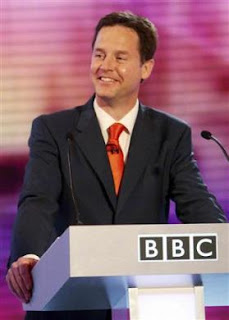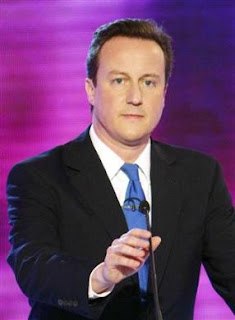
The moment you realise that you’re agreeing with those who’ve angered you to a point where spittle forms at the corners of your mouth as you’ve disparaged them as ‘crazy,’ and ‘imbeciles,’ is disquieting to say the least.
As the war drums started ringing their ominous tattoo in the corridors of the United Nations last week, it was with a great sense of confusion I watched as everyone I always agree with commentators, friends & Twitterati alike, cheered for a No-Fly Zone to be instituted over Libya. To put it plainly, as the Left started sounding like the Neo-Con war-mongering right. And when those I most vehemently disagree with started to express the opinion I held, that military intervention in Libya is a bad idea, well then I was truly disturbed.
Of course, it didn’t take much scratching beneath the surface to see that any agreement I had with the likes of the ANCYL was nothing but superficial, I do not believe that the “imposition of a No-Fly-Zone in Libya is meant to impose the West's takeover of Libya, because of its Oil endowments.”
In fact, to say – which I must admit I did a lot of on Twitter thanks to the brutality of 140characters – that I am against the military incursion in Libya, is misrepresentation of my opinion. Anyone who cast my lot with those who felt that foreign intervention in any form was wrong could hardly be blamed after the number of times I tweeted opinions similar to that.
In fact, for those holding that opinion, there is centuries of precedent. Since the advent of the nation-state, a states sovereignty being supreme has been a central notion in international relations, with the United Nations even entrenching that notion in their charter.
Of course all are entitled to their opinions, and as such I’d say, if not outright immoral, that position is at least amoral.
Again, that’s not a new idea. In 1948, two years later, recognising this, the United Nations espoused the first condition under which a state’s sovereignty could be impinged upon with it’s Genocide Convention.
Of course, what Gaddafi has done and continues to do despite his second declaration of a ceasefire in Libya is not genocide. Despite this, the vicious & brutal repression of a people seeking freedom from under the thumb of a dictator with a suspect handle of his mental faculties is near on just as odious. However, I still have my objections, or to be more precise, concerns.
My concerns with the Libya intervention are entirely on a point of principle; namely that military interventions on the grounds of humanitarian intervention though a principle fully and properly developed, is not applied equally.
In 2000, the International Commission on Intervention and State Sovereignty (ICISS) was founded and in 2001 released a report with the paradigm-shifting notion that the issue of humanitarian intervention should not be framed as a question of a ‘right to intervene,’ but rather as a ‘responsibility to protect.’
The UN took notice of ICISS’s report with an outcomes document which stated nations had a responsibility to protect their nations from “genocide, war crimes, ethic cleansing and wars against humanity” and by failing to do so made it the responsibility of the international community to do so. This report was ratified by all member states of the UN. However, the point where the problem became apparent was that this ratification was not legally binding.
of ICISS’s report with an outcomes document which stated nations had a responsibility to protect their nations from “genocide, war crimes, ethic cleansing and wars against humanity” and by failing to do so made it the responsibility of the international community to do so. This report was ratified by all member states of the UN. However, the point where the problem became apparent was that this ratification was not legally binding.
In yesterday’s debate on Libya before the House of Commons, David Cameron called the decision of the international community to intervene in Libya a “breakthrough” and set a “precedent” in that it was the first time the UN had intervened in a nation based on the responsibility to protect.
If only this were true.
When asked if the international community is not intervening in Yemen, why should they in Libya, Cameron replied that “just because you cannot take action everywhere that does not mean you should not act where you can,” going so far as to quote Sadie Smith when she characterised that as the “why should I tidy my bedroom when the world’s such a mess theory of foreign policy.”
Cameron is right, failure to act in Yemen – and it is a failure – does not preclude action in Libya. However, his reply ignored the elephant in the room. It’s not so much a question of if they can intervene in Yemen – or Cote d’Ivoire and Bahrain for that matter – but a matter of do they want to? For as long as the ICISS’s report is not legally binding, guiding the United Nations where and when they have a responsibility to protect, the ‘why,’ question will continue to dog this and any other action the United Nations decides to take based on a responsibility to protect.
I may not agree that “war is a continuation of diplomacy,” but I am not anti-war. At times war has it’s place and is needed, and as Niall Ferguson wrote, “Make no mistake. Whatever the wording of the United Nations Security Council resolution, the United States (and the other allies) is at war with the Libyan government.” Though I agree that this is a necessary and just war, I am amongst the many who have been trying to answer the ‘why’ question, not at all believing that it’s out of an altruistic wish to protect the citizens of Libya.
If we believe that Human Rights are universal to all people, regardless of borders, we cannot deny that the international community has a responsibility to protect in certain instances and this is one. I wish I could fully support the action in Libya, to be frank, Gaddafi is an evil madman and I desperately want to. However, the only way all questions regarding what the ‘true motives’ behind this and other humanitarian interventions will be ended is if the application of a responsibility to protect is uniform, and that will only happen once the ICISS recommendations are made legally binding.
__________
For an in depth look at Humanitarian Intervention, ICISS and it’s report I recommend this Council of Foreign Relations paper: “The Dilemma of Humanitarian Intervention.”
The images for this post are of the USS Stout, launching a Tomahawk Missile from the Mediterranean on the 19th of March and Obama receiving a secure briefing on the situation in Libya in Rio De Janeiro on the 20th.
They're taken from AFRICOM’s flickr photostream which I'd also reccomend.


